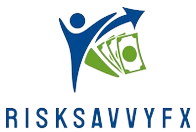The allure of foreign exchange (forex) trading beckons many, promising the potential for significant financial gains. However, this exciting world also harbors risks, with unscrupulous individuals preying on unsuspecting investors. Navigating the forex market requires not only an understanding of the financial instruments and strategies but also a keen awareness of the tactics employed by scammers. This article serves as a comprehensive guide, equipping you with the knowledge and tools necessary to identify and avoid common forex trading scams, ensuring you embark on your trading journey with confidence and caution.
Understanding Forex Trading Scams
Understanding Forex Trading Scams is crucial for anyone involved in the forex market. These scams encompass a range of deceptive practices aimed at defrauding traders of their hard-earned money. They often involve false promises of guaranteed profits, manipulation of trading platforms, or misleading investment schemes.
Traders should be aware of the warning signs, such as unrealistic returns or high-pressure sales tactics, and exercise caution when dealing with unfamiliar brokers or investment opportunities. By educating themselves about the common types of scams and remaining vigilant, traders can protect themselves from falling victim to fraudulent schemes and preserve their capital.
Red Flags to Watch Out For
| Red Flags | Description | Actions to Take |
| Unrealistic Promises | Offers of guaranteed profits or high returns with little to no risk. | Approach with skepticism and conduct thorough research. |
| Lack of Regulation | Absence of proper regulatory oversight or registration with relevant authorities. | Verify the broker’s regulatory status and credentials. |
| Pressure Tactics | High-pressure sales tactics or urgency to invest quickly. | Take a step back and reconsider before making any decisions. |
In the forex market, there are several red flags that traders should be vigilant about.
- Unrealistic Promises: Some scams may promise guaranteed profits or high returns with minimal risk. However, such claims are often too good to be true and should be approached with skepticism. It’s essential to conduct thorough research and verify the legitimacy of any investment opportunity before committing funds.
- Lack of Regulation: Another red flag is the absence of proper regulatory oversight. Reputable brokers are typically registered with recognized regulatory authorities, which helps ensure transparency and accountability. Traders should verify the broker’s regulatory status and credentials to avoid potential scams.
- Pressure Tactics: Scammers often use high-pressure sales tactics to prompt traders into making quick investment decisions. They may create a sense of urgency or fear of missing out on lucrative opportunities. Traders should be wary of such tactics and take a step back to reassess the situation before making any investment decisions.
By being aware of these red flags and taking appropriate actions, traders can protect themselves from falling victim to forex trading scams and safeguard their investments.
Researching Forex Brokers
When researching forex brokers, traders should consider several factors to ensure they choose a reputable and reliable broker:
Regulatory Compliance:
- Check if the broker is regulated by a recognized financial authority such as the Securities and Exchange Commission (SEC) or the Financial Conduct Authority (FCA). Regulatory compliance helps ensure that the broker operates within legal boundaries and follows industry standards.
- Verify the broker’s registration and licensing information on the regulatory authority’s website.
Reputation and Reviews:
- Look for reviews and testimonials from other traders to gauge the broker’s reputation and reliability. Online forums and review websites can provide valuable insights into the broker’s track record and customer satisfaction.
- Pay attention to any negative feedback or complaints, especially regarding issues such as withdrawal delays, poor customer service, or unfair trading practices.
Customer Support:
- Evaluate the broker’s customer support services to ensure they are responsive and helpful. Test their communication channels such as phone, email, and live chat to see how quickly they respond to inquiries and resolve issues.
- Consider the availability of support during different time zones, especially if you trade in international markets with different trading hours.
By thoroughly researching forex brokers and considering these factors, traders can make informed decisions and choose a broker that meets their needs and preferences. This helps minimize the risk of falling victim to scams and ensures a positive trading experience.
Protecting Your Investments
Protecting your investments in the forex market is essential to safeguarding your capital and minimizing the risk of financial loss. Here are some strategies to consider:
Due Diligence:
- Conduct thorough research before making any investment decisions. This includes researching the currency pairs you wish to trade, understanding market trends and dynamics, and analyzing economic indicators that may affect currency prices.
- Stay informed about geopolitical events, central bank policies, and other factors that can impact the forex market. Keeping abreast of relevant news and developments can help you make more informed trading decisions.
Risk Management Strategies:
- Implement risk management techniques to protect your investments from potential losses. This includes setting stop-loss orders to limit losses on individual trades, diversifying your portfolio to spread risk across different assets or currency pairs, and avoiding over-leveraging your trades.
- Consider using risk-reward ratios to assess the potential return on investment relative to the amount of risk involved. This can help you identify trades with favorable risk-reward profiles and avoid taking excessive risks.
Securing Personal Information:
- Take steps to protect your personal and financial information from unauthorized access or cyber threats. This includes using secure passwords for trading accounts, enabling two-factor authentication where available, and being cautious about sharing sensitive information online.
- Be wary of phishing scams and fraudulent emails or websites that may attempt to steal your login credentials or financial data. Only provide personal information to reputable and trusted sources.
By implementing these protective measures, you can help mitigate the risks associated with forex trading and safeguard your investments against potential threats and losses. Remember that while forex trading offers opportunities for profit, it also carries inherent risks, and it’s essential to approach it with caution and diligence.
Educating Yourself
Acquiring knowledge about forex trading is crucial for success in the market. There are various learning resources available to traders, including online courses, educational videos, books, and webinars. These resources cover topics such as technical analysis, fundamental analysis, risk management, and trading psychology. By investing time and effort into learning from these resources, traders can gain a deeper understanding of the forex market and develop the skills necessary to make informed trading decisions.
Staying Informed
In addition to formal learning resources, staying informed about market developments and trends is essential for staying ahead in the forex market. Traders should regularly follow financial news sources, subscribe to market analysis newsletters, and participate in online forums and communities. By staying abreast of economic indicators, geopolitical events, and central bank policies, traders can anticipate market movements and adjust their trading strategies accordingly. Continued education and staying informed are key components of success in forex trading.
Seeking Professional Advice
- Consider consulting with a qualified financial advisor who specializes in forex trading or investment management. A financial advisor can provide personalized guidance and advice based on your financial goals, risk tolerance, and investment horizon.
- Look for a reputable advisor with a track record of success and appropriate credentials, such as certified financial planner (CFP) or chartered financial analyst (CFA). Ask for recommendations from trusted sources or search for advisors through reputable organizations.
Legal Assistance:
- In cases of suspected fraud or misconduct, consider seeking legal assistance from a qualified attorney who specializes in securities law or financial regulation. A lawyer can help you understand your rights and options for recourse, including filing complaints with regulatory authorities or pursuing legal action against fraudulent brokers or investment schemes.
- Choose an attorney with experience in handling similar cases and a proven track record of success. Schedule a consultation to discuss your situation and evaluate the best course of action for protecting your interests.
By seeking professional advice from financial advisors and legal experts, traders can gain valuable insights and assistance in navigating the complexities of the forex market. Whether it’s developing a trading strategy, evaluating investment opportunities, or addressing legal issues, professional guidance can provide clarity and peace of mind in challenging situations.

